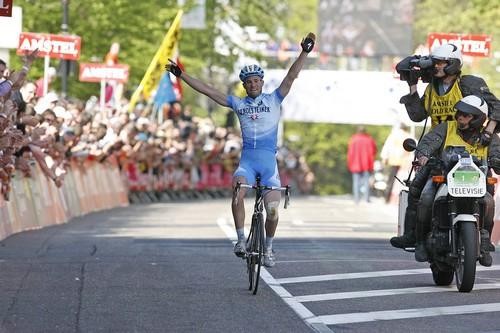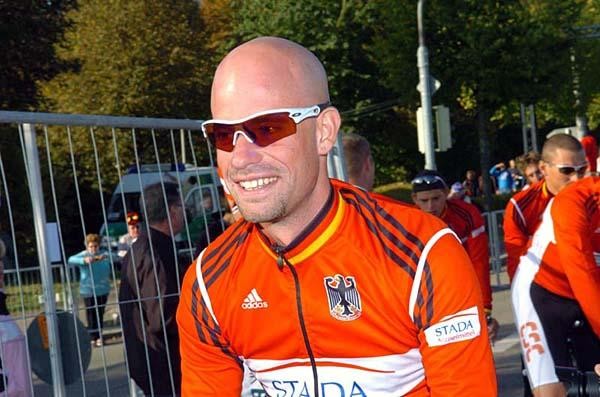Traces of amphetamine found in Schumacher's blood
By Susan Westemeyer German Stefan Schumacher of Team Gerolsteiner, who finished third in the World...


By Susan Westemeyer
German Stefan Schumacher of Team Gerolsteiner, who finished third in the World Championships in his hometown of Stuttgart in September, is having a hard time coming out of the negative headlines since that time. The winner of last year's Amstel Gold has now admitted that traces of amphetamines were found in his system after an auto accident in October.
The 26 year-old's series of problems began after the Worlds in late September, when it was disclosed that he had "irregular blood values" before the race, which he said were due to a bad case of diarrhoea.
A week after the Worlds, he celebrated with friends at a Stuttgart discotheque and after taking a taxi home to find his girlfriend absent, he climbed into his car to find her. He crashed into a garden fence, and left the scene of the accident "under shock," but returned to the scene within minutes. A test at the scene showed he had 0.07% blood alcohol content, which was above the German limit of 0.05%. Schumacher admitted to having been under the influence of alcohol.
At the time, the German tabloid BILD claimed that Schumacher had also tested positive for a "recreational" (as compared to performance-enhancing) drug in a blood test taken at the scene, which the cyclist vehemently denied. However, in a press release issued yesterday evening, he said that "I have now been informed that the police control showed that a slight amount of amphetamines were found in my body."
"My problem is that I haven't the slightest idea how it could have gotten there. I can't say anything else although I know that this is not a good statement. The only thing that I absolutely know: I did not knowingly take any drugs."
While he further noted that the use of amphetamines outside of competition is not on the forbidden list, the dpa press agency reported that the International Cycling Union (UCI) put amphetamines on the forbidden list in 1967. That is the same drug for which Jan Ullrich was suspended for six months in 2002, after a positive unannounced test while he was recovering from a knee injury.
Get The Leadout Newsletter
The latest race content, interviews, features, reviews and expert buying guides, direct to your inbox!
The question as to whether this is a "doping case" remained unanswered, since the test was conducted by the police and not by an anti-doping authority. The Bund Deutscher Radfahrer (BDR, German federation) issued a statement saying, "Our attorneys are investigating the matter. It will not be swept under the carpet."
Schumacher emphasised that this situation was a personal matter and not one that affects his profession. Team Gerolsteiner declined to comment on the matter, but there was already speculation that the team would have to fire the rider.
"That has absolutely nothing to do with doping," said Schumacher's attorney, Michael Lehner. "For me it is not an athletic case," and the whole thing has "no athletic relevance."
Schumacher, who is currently training on Mallorca, has lost his driver's license for 10 months and must pay a fine of 10,000 Euro to settle the accident charges.
It would not be Schumacher's first experience with such doping questions. During the 2005 Rheinland-Pfalz Rundfahrt, in which he won three stages and the overall title, he tested positive for norpseudoephedrine (cathine), a stimulant and appetite suppressant, although the charges were ultimately dismissed.